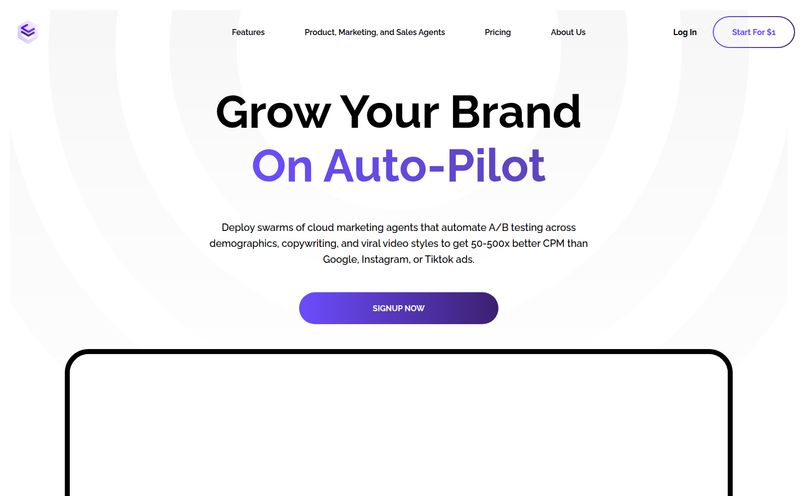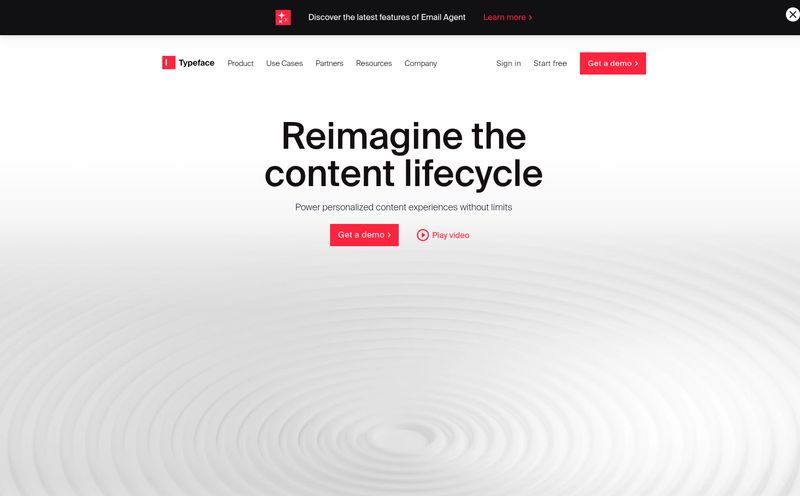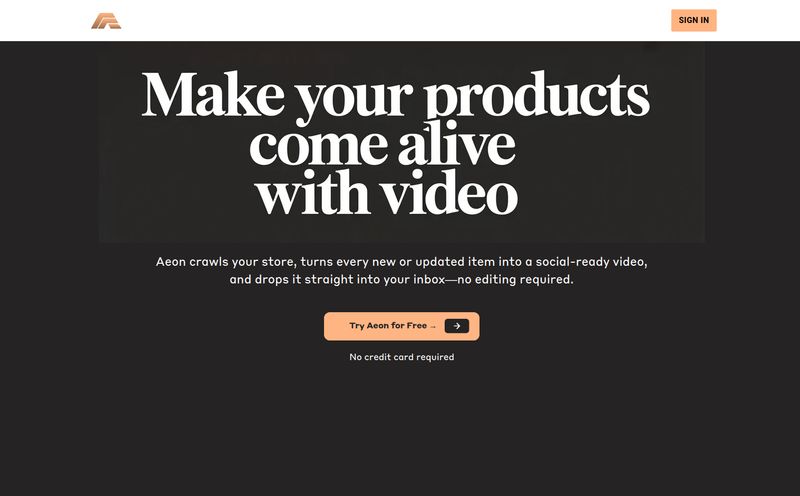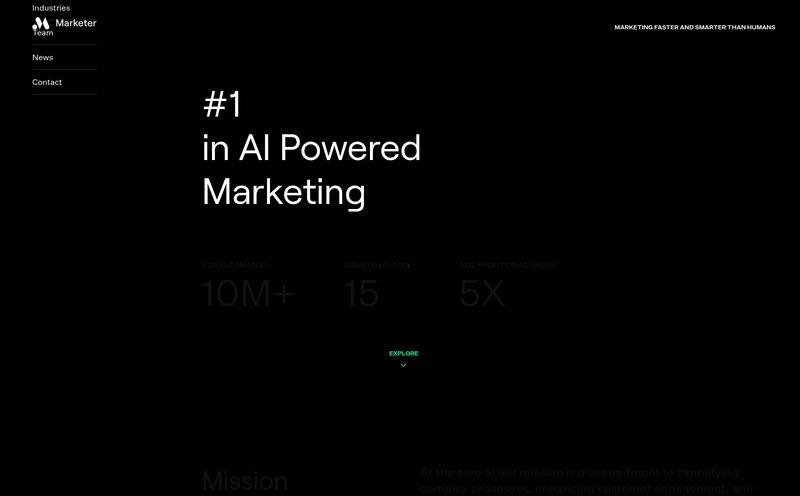If you're a freelancer or run a small agency, what’s the one task you dread the most? If you didn’t immediately say “writing proposals,” you’re either a saint or you’re lying. For me, it's always been a special kind of purgatory. You pour hours into crafting the perfect document—researching the client, outlining your strategy, agonizing over pricing—only to send it into the void, hoping for a sign of life.
It’s a time-suck. A necessary evil that stands between you and the actual work you love to do. So, when I stumbled across a new tool called uProposalGpt, my ears perked up. The name itself is a dead giveaway, right? It promises a fusion of proposal generation with the AI magic we're all getting used to. A tool designed specifically for us? The perpetually-caffeinated army of freelancers and agency owners? Sign me up. Or... well, I would if I could.
So, What is uProposalGpt, Really?
From the little breadcrumbs of information I could gather, uProposalGpt positions itself as an innovative proposal builder made for freelancers and agencies. The goal is simple and noble: make the soul-crushing process of creating client proposals easier and way more efficient. Think of it as a potential escape from the copy-paste nightmare of old Word documents or the frustrating limitations of generic templates.
The “GPT” in its name heavily implies it uses a generative pre-trained transformer—the same kind of tech behind tools like ChatGPT—to help craft the content. This could mean anything from suggesting compelling copy for your service descriptions to structuring the entire proposal based on a few prompts. The potential is huge.
Why This Could Be a Massive Deal for Freelancers
I’ve been in the SEO game for years, and I’ve seen tools come and go. The ones that stick are the ones that solve a real, nagging problem without adding a bunch of complexity. uProposalGpt seems to be aiming right for that sweet spot.
The Agony and Ecstasy of Proposal Writing
Every freelancer knows the cycle. You get a hot lead. Excitement! Then, the sinking feeling. The proposal. You spend half a day on it, making it look professional, ensuring every detail is perfect. The time you spend on that proposal is unpaid time. It’s an investment, a gamble. If a tool can cut that time down from three hours to thirty minutes... that's not just a time-saver. It’s a money-maker. It’s more time you can spend on billable work or, heaven forbid, actually taking a break.
A Niche Focus We Love to See
There are plenty of proposal tools out there, sure. I’ve tried a few. But many are built for large sales teams in massive corporations. They’re clunky, expensive, and loaded with features a solo freelancer will never touch. The fact that uProposalGpt is explicitly for freelancers and agencies tells me they understand our unique pain points. We don’t need complex approval workflows; we need speed, polish, and a professional look that helps us compete with the big guys.
Okay, So What's the Catch? The Current Mystery
Alright, time for a dose of reality. I went to check out the uProposalGpt website, full of optimism and ready to kick the tires. And I was greeted by… well, this:
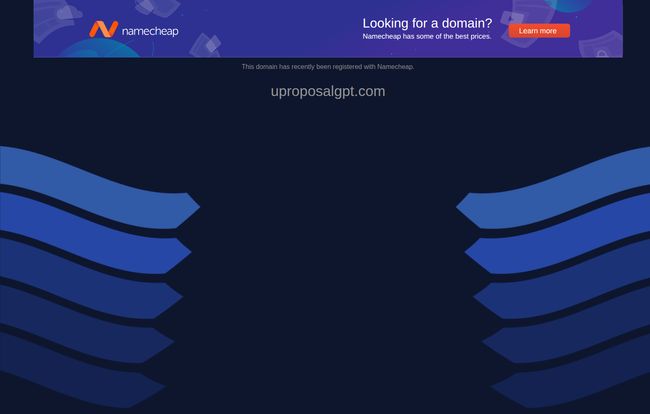
Visit uProposalGpt
A placeholder page. A digital ghost town. The domain has been registered, but the lights aren't on yet. It's a classic pre-launch scenario. On one hand, it’s a bit of a letdown. On the other, it’s kind of exciting, isnt it? We’re getting a peek at something before it’s even been properly announced. It feels like finding a secret menu item.
This does mean that hard facts are scarce. The official description is brief, and a detailed feature list is nowhere to be found. So for now, we have to do a little bit of professional speculation.
Speculating on the Features We Hope to See
If I were building this tool, what would I include? My wish list for uProposalGpt would have a few key things. First, a library of solid, well-designed templates for different industries—SEO, web design, copywriting, social media management, you name it. Second, the AI component needs to be smart. I don’t just want it to spit out generic text. I want it to help me articulate value, suggest pricing tiers, and maybe even analyze a client’s website to suggest personalized services.
Integrations would be the cherry on top. Imagine being able to pull in client details from your CRM, track proposal views and opens, and have an e-signature feature built right in. That's the dream workflow. Something that connects the dots from lead to signed contract seamlessly.
The Big Question: What About Pricing?
This is always the elephant in the room. The pricing page for uProposalGpt is, unsurprisingly, non-existent. My hope is that they adopt a freelancer-friendly model. A lot of us are operating on tight budgets. A simple, affordable monthly plan would be fantastic. Maybe a tiered system—a free version for a couple of proposals a month and a premium plan with unlimited proposals and advanced features like analytics. What I really hope they avoid is a steep, per-user pricing model that immediately prices out the solo operator. Fingers crossed they get this right.
How Does uProposalGpt Stack Up Against the Competition?
Even in its pre-launch state, we can think about where uProposalGpt might fit in. The proposal software space is dominated by heavyweights like PandaDoc and Proposify. These are powerful, mature platforms. But as I said, they can sometimes feel like using a sledgehammer to crack a nut for a simple freelance project. They're feature-rich, but that also means they can be complex and costly.
uProposalGpt's main differentiator seems to be its targeted approach and the promise of AI-driven content creation. If it can deliver a truly intelligent and intuitive writing assistant specifically for proposals, it could carve out a very nice niche for itself. It’s not just about templates; it’s about conquering the blank page with a smart assistant by your side. That’s a compelling proposition.
The Verdict for Now is Cautious Optimism
So, where do we stand with uProposalGpt? It's a tantalizing promise wrapped in a bit of a mystery. It’s a tool that could genuinely solve one of the biggest headaches for independent professionals. The focused mission—to help freelancers and agencies create better proposals faster—is exactly what the market needs.
For now, it's a waiting game. We'll be keeping a close eye on that domain, waiting for the placeholder to be replaced with a login screen. I’m genuinely excited to see what they build. If they can deliver on even half of the potential, uProposalGpt could become an indispensable part of the modern freelancer’s toolkit. And my proposal-writing dread might just become a thing of the past.
Frequently Asked Questions
- What exactly is uProposalGpt?
- uProposalGpt is an upcoming AI-powered proposal builder designed specifically to help freelancers and small agencies create professional client proposals quickly and efficiently.
- Who is the target audience for uProposalGpt?
- Its primary audience is freelancers, solopreneurs, and small agencies across various creative and technical fields who need to produce proposals as part of their workflow.
- Is uProposalGpt available to use right now?
- No, not at the moment. The website is currently a placeholder page, which indicates the tool is in a pre-launch or development phase. There is no official release date yet.
- What are the potential benefits of using a tool like uProposalGpt?
- The main benefits would be saving significant time on proposal creation, producing more professional and persuasive documents with the help of AI, and streamlining the sales process to win more clients.
- How much will uProposalGpt cost?
- Pricing information has not been released. We can speculate that it might offer a tiered subscription model, possibly including a free or low-cost plan to appeal to its freelancer and small agency target market.
- How might uProposalGpt differ from existing proposal software?
- Its key differentiators appear to be its tight focus on the freelance/agency market and its core use of GPT-based AI to assist with content generation, which could make the writing process much faster and more intuitive than traditional template-based editors.
